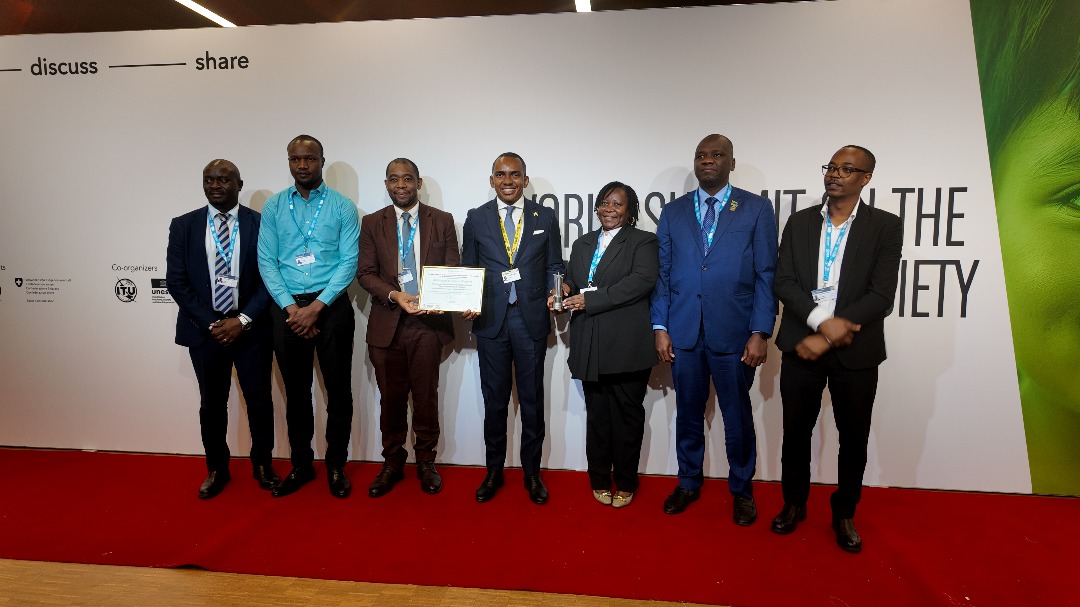JACK ZIMBA
Lusaka
Tanzania’s cutting-edge digital health initiative, e-Mrejesho V2, has earned global recognition at the WSIS+20 Forum in Geneva, underscoring the continent’s growing embrace of technology to transform public health and governance systems.
The World Summit on the Information Society (WSIS) is a multistakeholder United Nations (UN) platform that promotes people-centred, inclusive, and development-oriented digital transformation. Tanzania’s e-Mrejesho V2 was honoured for its contribution to sustainable development and inclusive governance.
Developed by the e-Government Authority (e-GA) under the Ministry of Communication and Information Technology, the AI-powered platform enables citizens to provide real-time feedback on government services.
This input is analysed using artificial intelligence to help institutions respond swiftly and improve service delivery based on data-driven insights.
“The system aligns with Action Line C7 on e-Government and supports the UN’s Sustainable Development Goals by enhancing access to and efficiency of public services for many Tanzanians,” said e-GA communications manager Subira Kaswaga in an interview with Daily News.
“This not only strengthens transparency but also enhances accountability within public institutions,” she added.
The e-Mrejesho V2 was shortlisted from more than 1,000 project submissions worldwide, with only 360 making it past the initial screening.
Also recognised was the Kadi ya Matibabu digital health card system, which links citizens’ national ID numbers to their electronic medical records. This innovation has been rolled out across Zanzibar, allowing health workers to access patient data instantly at any public facility.
The result: improved treatment consistency, reduced record duplication, and faster response times.
Tanzania’s Minister of Communication and Information Technology, Jerry Silaa, said the recognition demonstrates what is possible when digital reforms are citizen-centred, well-coordinated, and anchored in a robust national ID framework.
“This achievement reflects the broader digital transformation underway in Tanzania, where systems in health, finance, and public services are being integrated through a unified ICT backbone,” Mr Silaa said.
The country’s approach – backed by cybersecurity standards, ICT training for public staff, and a consolidated digital platform – has become a benchmark for digital governance in the region.
While Tanzania’s model garners global attention, Zambia is also making notable strides in digital health.
In 2005, Zambia piloted the SmartCare platform – a patient data system now deployed in 406 health facilities across Lusaka, Copperbelt, and Southern provinces. The target is to scale up to 1,199 facilities by the end of 2025.
SmartCare uses biometric identification and mobile data collection to enhance health service delivery, particularly in rural areas. In districts like Kazungula, community health workers use mobile devices to track immunisations, monitor maternal health, and coordinate home-based care. Information that once took days to transmit is now shared in near real-time.
Despite differences in structure and scale, both countries face similar challenges: limited infrastructure in remote areas, evolving data privacy regulations, and the ongoing need to build public trust in digital platforms.
“Tanzania’s global recognition sets an aspirational tone, but Zambia’s steady system-building also deserves attention,” said Mr Silaa. “Ultimately, success must be measured by whether citizens are receiving better services – efficiently, securely, and without delay.”
As digital governance accelerates across Africa, the narrative is not one of competition but of shared progress. Whether through international accolades or quiet innovation, both nations are demonstrating that the future of public service in Africa is increasingly digital – and people-focused.


